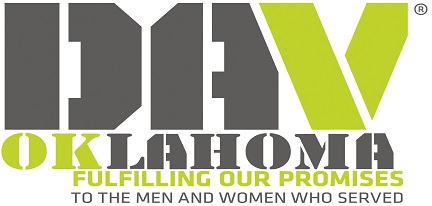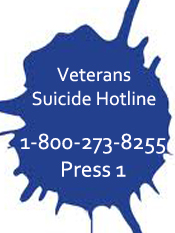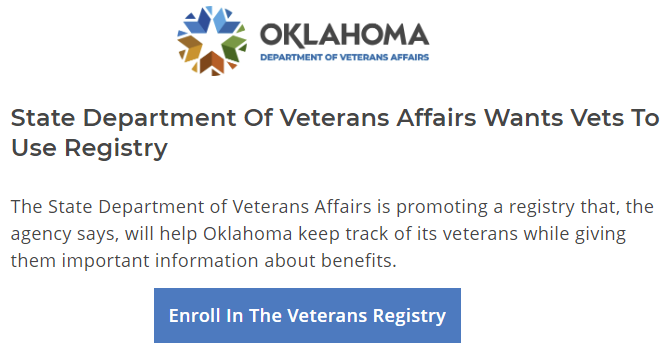Iraq and Afghanistan Veterans of America (IAVA) Executive Director Allison Jaslow joined the Women’s Congressional Policy Institute and the bipartisan House Women’s Caucus for their annual Women Veterans Briefing in Washington D.C. Jaslow underscored the need for IAVA’s groundbreaking She Who Borne the Battle campaign. Launched not long after the “Marines United” photo scandal revealed shocking harassment of women troops in the military, IAVA’s #SheWhoBorneTheBattle campaign is anchored by the Deborah Sampson Act and a quest to change the outdated VA motto that excludes women. Jaslow joined Dr. Carolyn Clancy, Executive in Charge of the Veterans Health Administration, Shurhonda Love, Associate National Legislative Director of Disabled American Veterans and Cindy Hall, President of the Women’s Congressional Policy Institute on the panel to discuss the need for increased recognition and improve services for women veterans.
More than 345,000 women have deployed in support of combat since 9/11, women are breaking down barriers in the military, but far too many women veterans still feel invisible.
• Women veterans’ fight for equality gains momentum with bipartisan women’s caucus panel:
• Bill to increase funeral and burial benefits for veterans introduced in House:
H.R. 1212 creates two categories of burial benefit: service-connected and non-service connected deaths. Veterans would be eligible for:
$2,000 for a death from service-connected disability; the benefit would be indexed for inflation
$749 for a death in a VA department facility (this amount is currently indexed for inflation)
$749 for a non-service-connected death or veterans with no next of kin; the benefit would be indexed for inflation
In order to be eligible for this benefit the veteran must not have been dishonorably discharged. In addition, at least one of the following conditions must be met:
Veteran died as a result of a service-connected disability
Veteran receiving VA pension or compensation at the time of death
Veteran is entitled to receive VA pension or compensation, but took full military retirement or disability pay
Veteran died while hospitalized by VA or while receiving care under VA contract at a non-VA facility
Veteran died while traveling under authorization and at VA expense to, or from, a specified place for purpose of examination, treatment, or care
Veteran had original or reopened claim for VA compensation or pension pending at the time of death and would have been entitled to benefits from a date prior to the date of death
Veteran died on, or after, October 9, 1996, while a patient at a VA-approved state facility
• Free career training BEFORE you leave the service:
Leaving the military can be a major life change for many military members and their families. Traditionally, transition is simply a class they have to take and paperwork they have to sign before they officially return to the civilian world. Unfortunately, that move from the military to the civilian world can often be a more significant jump than often anticipated. And one that is not necessarily managed well.
Onward to Opportunity in Partnership with Veterans Career Transition Program (O2O-VCTP) is a free, Department of Defense supported training program—offered either online or in person–that provides industry-specific instruction and certification in business, technology and customer service industries up to six months before separating from the service. The program has skilled over 10,000 members to date and has an aggressive goal to place 30,000 veterans into employment or better employment by 2022.
Big decision on retirement pay looming for service members:
According to military news –
Service members must choose soon whether to keep their retirement plans or enroll in a new plan that more closely resembles those available in the private sector. Training required for service members to decide whether to switch to the new plan, known as the Blended Retirement System, must be completed by Dec. 31.
Currently, retired service members each month receive 50 percent of the average of their highest three years of base pay, plus 2.5 percent more for each year of active duty after 20 years.
Under the new plan, the payout is reduced to 40 percent and 2 percent more for each year of active duty after 20 years. However, the new plan includes matching contributions to the Thrift Savings Plan, a program similar to a traditional 401(k). Service members can choose to invest their money in different funds, with varying risk.
Senator’s bipartisan bill boosts benefits for disabled veterans, Gold Star families:
The U.S. Senate has unanimously passed U.S. Senator Jon Tester’s bipartisan bill to increase certain VA benefits for veterans and their families. Tester’s Veterans’ Compensation Cost-of-Living Adjustment Act increases the VA’s compensation to disabled veterans and Gold Star Families, the spouses and children who’ve lost a loved one in service to the nation. The cost-of-living adjustment is determined by the Bureau of Labor Statistics’ Consumer Price Index on a yearly basis. The cost-of-living adjustment for veterans, equal to the adjustment given to Social Security recipients, would go into effect on Dec. 1, 2017.
Tester recently introduced legislation to honor Gold Star Families by increasing the benefit awarded to these families by about $300 a month and expanding the benefit to families of fully-disabled veterans.
Veterans poised to get 2 percent payout raise on Dec. 1:
Military veterans could see their payouts increased by 2 percent later this year – one of the biggest gains in at least six years – under legislation slated for presidential approval next week.
The plan, the Veterans’ Compensation COLA Act of 2017, would boost cost-of-living payments and could be reflected in the recipient’s January checks. The legislation was passed unanimously by the Senate this week, following approval of an identical bill in the House during summer.
Veterans Emergency Room Relief Act of 2017.
Senator Bill Cassidy (LA), a member of the Senate Veterans’ Affairs Committee, introduced S. 1261, the Veterans Emergency Room Relief Act of 2017. This bill would require VA to contract with community urgent care providers and pay reasonable costs for such care provided to veterans who are enrolled in the VA health care system and have received care in the system within the preceding two years.
It would also establish cost-sharing amounts for certain veterans receiving care at a VA emergency room. However, veterans who are hospitalized as a result of their urgent care visit and veterans seeking care for a service-connected condition in addition to veterans meeting criteria for hardship exceptions would be exempt from copayments.
DAV Resolution 242 calls upon Congress to authorize urgent care as part of VA’s basic health benefits package. Please write your Senators and urge their co-sponsorship and support for passage of S. 1261.
Public Law 115-62, the Department of Veterans Affairs Expiring Authorities Act of 2017,
On September 29, Public Law 115-62, the Department of Veterans Affairs Expiring Authorities Act of 2017, was enacted into law. The bill extends a number of current authorities in veterans’ programs, including Health Care, Benefits, Homelessness, and other matters. The provisions discussed below are supported by resolutions approved by DAV’s membership at our national convention this summer.
DAV strongly supports this law, which extends, by two years, authority for VA to provide nursing home care to veterans with service-connected disabilities; to provide assistance and support services for caregivers; to continue a pilot program for child care for certain veterans in order to allow them to receive health care; to extend a pilot program offering women veterans counseling in retreat settings; and to support beneficiary travel and grants for innovative transportation for veterans living in highly rural areas. It also allows VA to reimburse veterans for beneficiary travel to Vet Centers in the same manner as if they received services within VA health care facilities for one additional year. A pilot program to provide neurobehavioral therapy and services to veterans with traumatic brain injuries was extended only by three months pending the submission of a final report to Congress due this December.
The Act also allows VA to continue to provide rehabilitation and vocational benefits to active duty service members with severe injuries for one more year. This authority allows VA to address immediate rehabilitative needs of service members while their probable medical discharges are pending.
The Act extends, by one year, many provisions to assist homeless veterans, including the Veterans Employment and Training Service (VETS) program administered by the Department of Labor, in addition to grants for child care for certain veterans participating in these programs. It extends authority for referral and counseling services for certain “at risk” veterans and provides supportive services for very low income families in permanent housing to preempt homelessness. It extends, by two years, “special needs” grants to homeless provider grantees who work with populations who require additional attention such as hospice services or intensive mental health care and authority for VA to continue to provide comprehensive community services to homeless veterans with serious mental illness.
In addition, the law authorizes, for two additional years, appropriations for adaptive sports programs for disabled veterans and service members. It also extends authority for specially adapted housing grant programs.
DAV commends Congress for acting quickly to ensure these important authorities for veterans were not allowed to lapse. Service-disabled veterans depend upon these programs to reintegrate successfully into their families, communities and vocations.
• Claims for WW II mustard gas exposure:
Claims being made on behalf of WW II veterans for mustard gas exposure must be –
I. for full body exposure
II. the veteran must have served at at least 1 of the 22 known locations
• VA hearing and vision benefits:
The Department of Veterans Affairs will ensure access to audiology and eye care services including preventive health (care) services and routine vision testing for all enrolled veterans and those veterans exempt from enrollment. The VA will provide eyeglasses and hearing aids to veterans who meet the following criteria:
Veterans with any compensable service-connected disability.
Former prisoners of war
Purple Heart recipients
Veterans who are qualified for an increased pension based on being permanently housebound and in need
of regular aid and attendance.
Veterans with significant functional or cognitive impairment evidenced by deficiencies in the ability to
perform activities of daily living.




